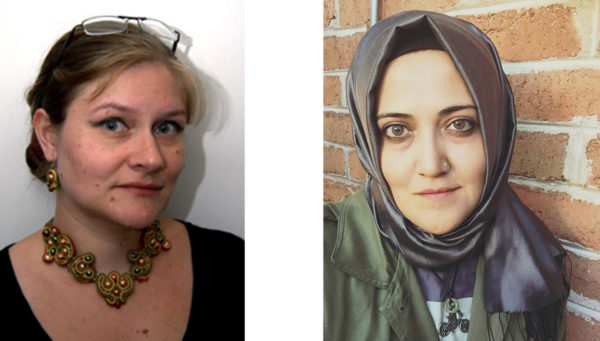Dear EASA members,
To reflect the team spirit that animated our last executive committee (and will undoubtedly continue into the new one), we write this letter together as outgoing president – and current vice-president – and incoming president of our association. We are both humbled and grateful for the confidence that many of you expressed through your vote.
We want to take a moment to reflect on what the past two years mean for our association and to underline the work that has been done by the past executive committee. We have:
- Strengthened and supported the work of networks – the lifeblood of our association – by increasing the funding allocated to biennial network activities to an unprecedented amount of 74.000 euro for 2025
- Professionalised and diversified our social media communication by hiring a wonderful team that runs our Facebook, Twitter, Bluesky, and LinkedIn accounts, and by providing social media training to network convenors
- At the request of our membership, through the Motion on creating the working group on academic freedom and human rights that was submitted in December 2023 and that subsequently received a favourable vote, we have created a Working Group on Human Rights and Academic Freedom which tackled cases where the academic freedom of our members was curtailed or threatened
- We have strengthened the cooperation with national associations by organising two meetings that served the purpose of creating a common agenda to enhance the voice of European anthropology and tackle common issues
- As a consequence, the European Anthropology Days were organised for the last two years in the third week of February, showcasing to wider audiences what anthropologists do in Europe and attracting interest for our discipline
- We organised – with the tremendously important work of the local committee in Barcelona and of NomadIT – the largest EASA conference yet, gathering over 2700 delegates
- We supported the participation of precarious EASA members to the 2024 conference by funding 105 participants out of the 500 eligible requests for funding – the highest proportion so far (21%)
- We supported our early career, precarious members by launching a mentorship programme for 20 PhD candidates / postdocs, and by funding an EASA summer school in Barcelona for 20 PhD candidates – an initiative that we aim at developing in a sustainable way in future conference years
- We maintained the topic of academic precarity on the agenda and launched / participated in collaborative conversations on the impact of precarity on teaching and mental health, and on anti-precarity organising – an initiative of the previous executive committee that we brought to fruition; recordings of our webinars can be found on our EASA webinars page.
- We addressed inherited issues that EASA’s flagship journal, Social Anthropology / Anthropologie Sociale was facing, by enlarging the editors’ team from two to four members, and by supporting them to tackle the backlog and bring the journal back to an efficient publication flow
- We overhauled our website and redefined EASA’s visual identity and web presence
- We drafted a strategy for our association in consultation with our members – a strategy that will support consecutive executive committees to work towards a coherent set of goals for EASA’s development and growth, and for strengthening European anthropology.
For all these achievements, we thank the outgoing executive committee members who dedicated their time, energy, and ideas to EASA: (alphabetically) Dom Bryan, Monica Heintz (outgoing Secretary), Hege Høyer Leivestad, David Mills (outgoing Treasurer), and Roger Sansi Roca. It truly has been a joy to work together these past two years!
Through this work, EASA has become a more dynamic, engaged, inclusive, and vocal association, and the three of us continuing in the new executive committee (with Alexandra Oancă, outgoing vice-president) will carry on the mission of strengthening European anthropology and supporting our members.
Your vote showed that many of you think EASA is going the right way and doing the right thing. We take the vote as invaluable guidance from our membership in a time of disconcerting global shifts, threats to academic freedom and human rights, and increased precarity. We remain convinced that anthropology should find a renewed relevance amidst the current crises and that EASA should continue to defend academic freedom, tackle academic precarity, support early career scholars, and work towards a transformative, inclusive, and responsible anthropology.
